Share
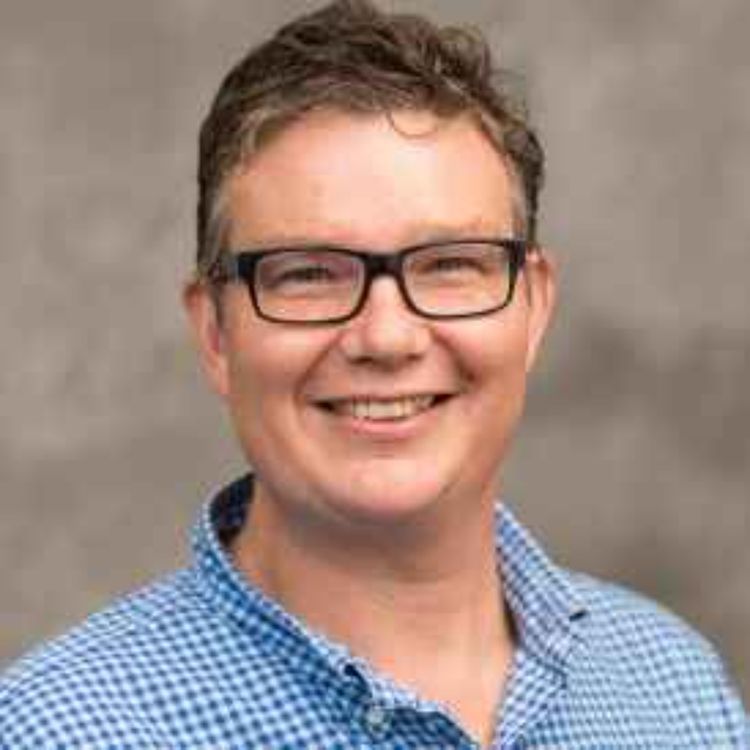
Michigan Minds
Space Science Success: The Significance of the James Webb Space Telescope Images
Season 6, Ep. 4
•
Michael Meyer, PhD, professor in the U-M department of astronomy, joins this episode of Michigan Minds to provide insight on the significance of the new images taken by NASA’s James Webb Space Telescope (JWST). Meyer shares his unique perspective and experience as one of the scientists who had a role in the design and construction of the telescope.
More episodes
View all episodes

5. Reasons for hope amid grim climate news
22:58||Season 9, Ep. 5Climate expert Jonathan Overpeck, dean of the University of Michigan School for Environment and Sustainability, does not sugarcoat things.The words "scary," "depressing" and "devastating" come up when he talks about the impacts of climate change, including record warmth and drought conditions. But he also doesn't ignore how communities across the country and around the world are finding ways to reduce their greenhouse gas emissions and fossil fuel consumption.Overpeck joined the Michigan Minds podcast to discuss recent trends in climate news—both good and bad—and what people can do to stay resilient.Do you have advice for people who are feeling climate anxiety and ways to cope with that?We get that question a lot from students, but I think also fellow faculty. These are tough times in terms of what's going on in Washington, what's going on in our global climate. There are a lot of other things going on that we worry about, so I think what's important is to figure out ways to be resilient. And one of the ways is to really reach out to your family, friends and community to get the support you need. Another is to find things you can do. And there's so many things you can do.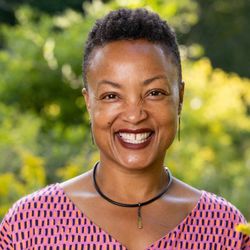
4. Investments in climate change mitigation not being felt yet
22:57||Season 9, Ep. 4Shalanda Baker is the University of Michigan's vice provost for sustainability and climate action. She joined the Michigan Minds podcast to discuss the opportunities and challenges that lie ahead.How does the current political climate affect what we're doing here at the University of Michigan with regard to sustainability and climate action?I am so laser focused on climate action and sustainability. I think the science is clear. We're in an emergency. We are in the last decade of action. We only get one life, and so in my life, I've decided to be of service, whether that be as a military officer, which I've done, as a professor, or a civil servant, which I also did, and now here.We're doubling down on making clear what the science is and what the urgency is.Now, as we communicate that more broadly, we absolutely have to connect the dots. I think one of the reasons why the arguments being made by the current administration have been so powerful and connected with people is that the investments that we were making to mitigate climate change were not being felt yet.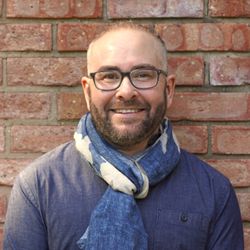
3. Oliver Haimson talks about the changing social media landscape
21:51||Season 9, Ep. 3Welcome to the Michigan Minds Podcast, where we explore the wealth of knowledge from faculty experts at the University of Michigan. I'm Jared Wadley, a lead public relations representative for Michigan News. Today I'm speaking to Oliver Haimson about the changing social media landscape. He's an assistant professor in the School of Information and the Digital Studies Institute. Oliver's research focuses on social media content moderation and marginalized populations, as well as the changing identities on social media during life transitions. Thanks for being here, Oliver.Oliver Haimson:Yeah. Thanks so much for having me, Jared.Jared Wadley:Before we get into the topic, tell the audience a little bit about how you became interested in studying social media.Oliver Haimson:Yeah. I mean, I think I started where most people start, which is I was really interested in social media myself. It was I guess the early 2010s when I started doing research in this area, and as a social media user, I was just fascinated by the ways that people were using it to mostly talk about more sensitive content, how people were thinking about disclosure and how they were presenting their identities on social media. So it really came from this personal perspective. But I think in a lot of cases, social media researchers as they start to learn more about the space end up using social media less themselves. So I would say that nowadays I'm not the biggest social media user, but I am still really fascinated by it from a research perspective.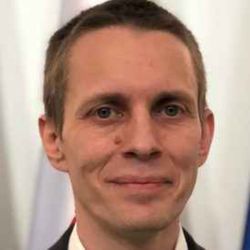
2. Teaming up with Polish and Ukrainian scientists on plant DNA research
20:07||Season 9, Ep. 2When Russia invaded Ukraine, civilian lives, as well as lives of the scientists who live in the country, were upended. When an international grant was launched to support Ukrainian scientists, Andrzej Wierzbicki, a U-M professor of cellular, molecular and developmental biology, who is Polish, saw the funding opportunity as a way to help support the country that neighbors his own. Wierzbicki won a grant from the International Multilateral Partnerships for Resilient Education and Science System in Ukraine, or IMPRESS-U. Wierzbicki joins the Michigan Minds podcast to discuss how he is working with partners in Poland – Marcin Nowotny of the International Institute of Molecular Cell Biology in Warsaw – and Ukraine – Mykhailo Tukalo of the Institute of Molecular Biology and Genetics in Kyiv – to explore how DNA is organized within plant chloroplasts.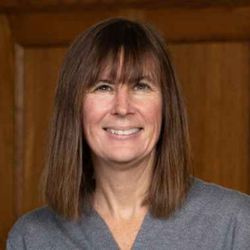
1. Fixing a broken healthcare system can help heal ailments, stem frustrations
16:35||Season 9, Ep. 1In this episode of Michigan Minds, Pamela Herd, social policy professor at the University of Michigan, discusses issues of healthcare access and affordability in light of the slaying of an industry CEO, efforts of a university lab in boosting access and breaking down walls to social safety net programs, and finding common ground within a polarized electorate.Here's an excerpt of the conversation:The killing of a healthcare CEO on a Manhattan sidewalk has become, in the words of Philadelphia Inquirer columnist Will Bunch, "a stunning moment of clarity about the state of American society." I'd like to ask you what Will asked his readers: Why did it take an assassination to raise an issue that was ignored in a presidential campaign?So let me preface this by saying that vigilante justice, which is one way to think about what happened, is never OK. The killing, the murder, assassination of the United Healthcare executive was not OK.That said, people's reactions to it and the kind of depth of the anger that we heard from people in response is I think a pretty strong signal that something is fundamentally broken in how we deliver healthcare in the United States. And that's what it really tapped into: People are incredibly frustrated in the U.S. healthcare system. We spend enormous amounts of money paying for healthcare, both individually out of pocket as well as aggregately in terms of the federal and state budgets. And people just feel like they're not getting their money's worth.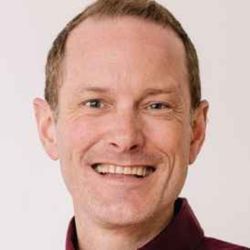
14. Finding the metals necessary for the energy transition
19:45||Season 8, Ep. 14To combat climate change, the world needs to pivot away from fossil fuels.But building battery electric vehicles and infrastructure for renewable energy will require enormous amounts of minerals and resources, which can only be obtained in the quantities needed through mining. Low and low-to-middle income countries are also looking to boost their access to electricity, which will now likely take place through renewable energy systems. Adam Simon, a professor of earth and environmental sciences at the University of Michigan, studies how metals are deposited in the Earth's crust, with the ultimate goal of ensuring a sustainable supply of resources for our growing global population. He recently published a study for the International Energy Forum that showed we currently do not mine copper quickly enough to keep up with the global demand for the energy transition.He joins the Michigan Minds podcast to discuss minerals needed for the energy transition, and how we will need to access those resources.
13. When tightwads and spendthrifts can agree on spending
19:50||Season 8, Ep. 13Scott Rick is an associate professor of marketing at the Ross School of Business. His research speaks to how consumers perceive and experience inflation, how they choose what gifts to buy, and how they experience in-store and online shopping environments. He is particularly interested in understanding the behavior of extreme “tightwads” and “spendthrifts.”
12. Validation and verification for elections
25:21||Season 8, Ep. 12In this episode of the Michigan Minds podcast, J. Alex Halderman—Bredt Family Professor of Engineering and director of the Center for Computer Security and Society—discusses weak points in the U.S. electoral system and how to fix them, as well as the results of investigations following the 2020 election.
11. Tony Reames talks about the energy transition for disadvantaged communities
18:18||Season 8, Ep. 11Tony Reames, an associate professor at the University of Michigan School of Environment and Sustainability, just returned to campus from two years at the U.S. Department of Energy working on energy justice.The Tishman professor of environmental justice and director of the SEAS Detroit Sustainability Clinic joined us on the Michigan Minds Podcast to share his thoughts on how energy justice could manifest in the United States. His research focuses on disparities in residential energy generation, consumption, and affordability—centering on the production and persistence of inequality by race, class, and place.You just returned home from more than two years at the U.S. Department of Energy working on energy justice. What is energy justice and how is it manifesting in the United States?Energy justice is this concept that really looks at how do communities participate in both the health environment and social impacts of our energy system, recognizing that the energy system has had certain burdens on communities. And so environmental justice is really saying that all communities, regardless of race and income and geography, should be afforded a clean environment. And that the goal of addressing injustices gets us toward making sure that that's true. Climate justice also recognizes that communities of color, low-income communities are feeling the climate crisis first and worst, and that any action to address climate change should include those communities and their burdens.